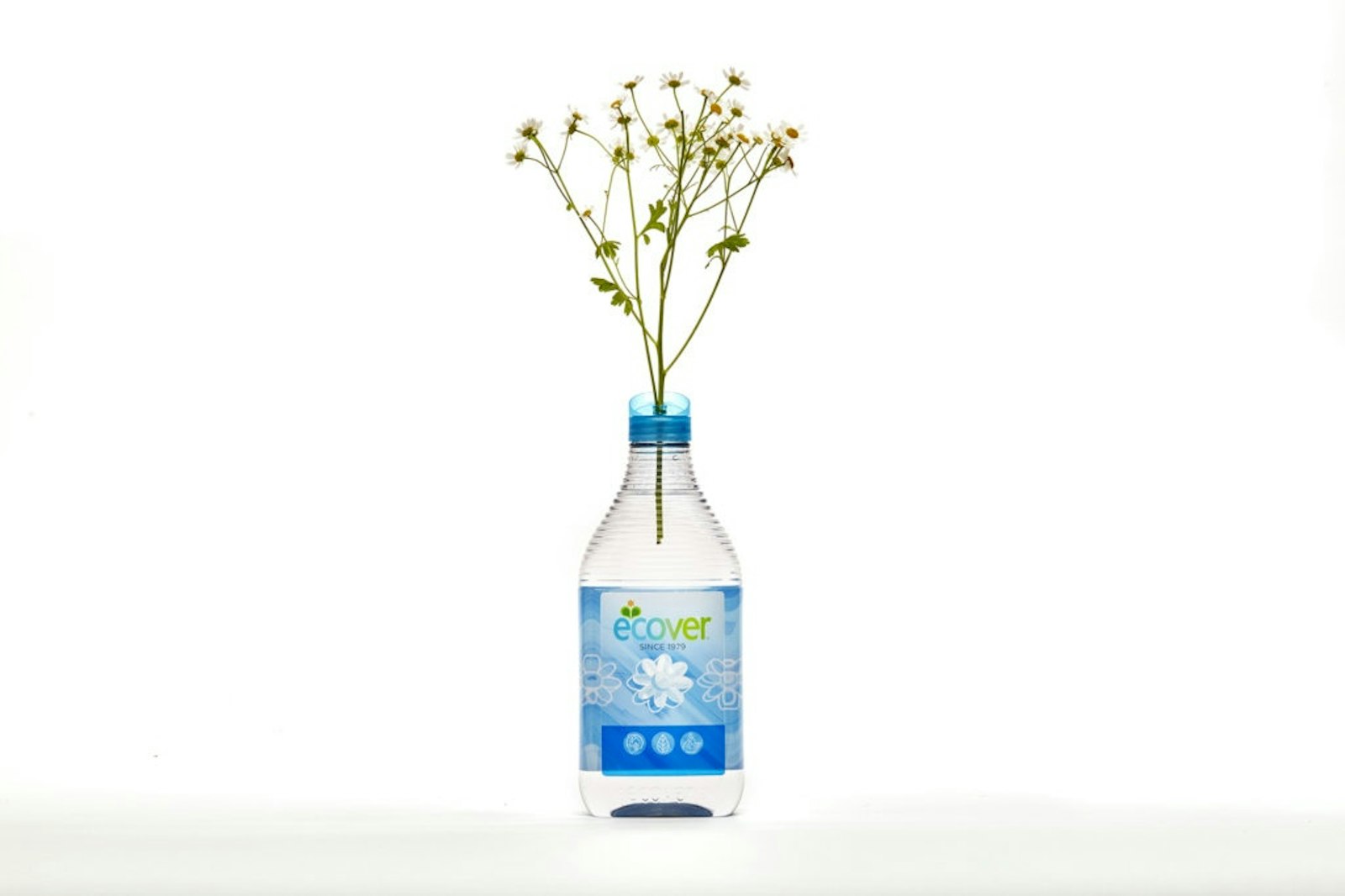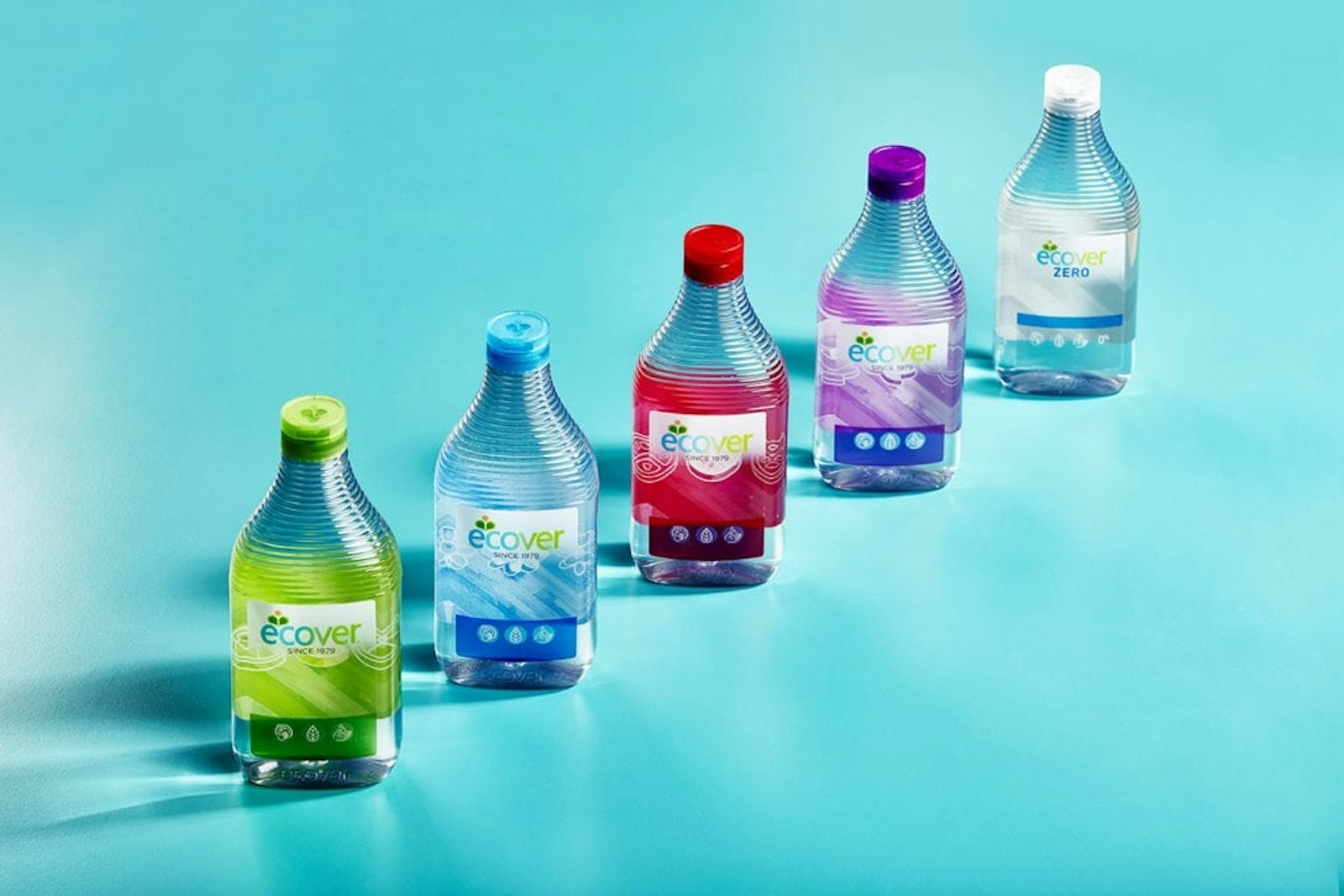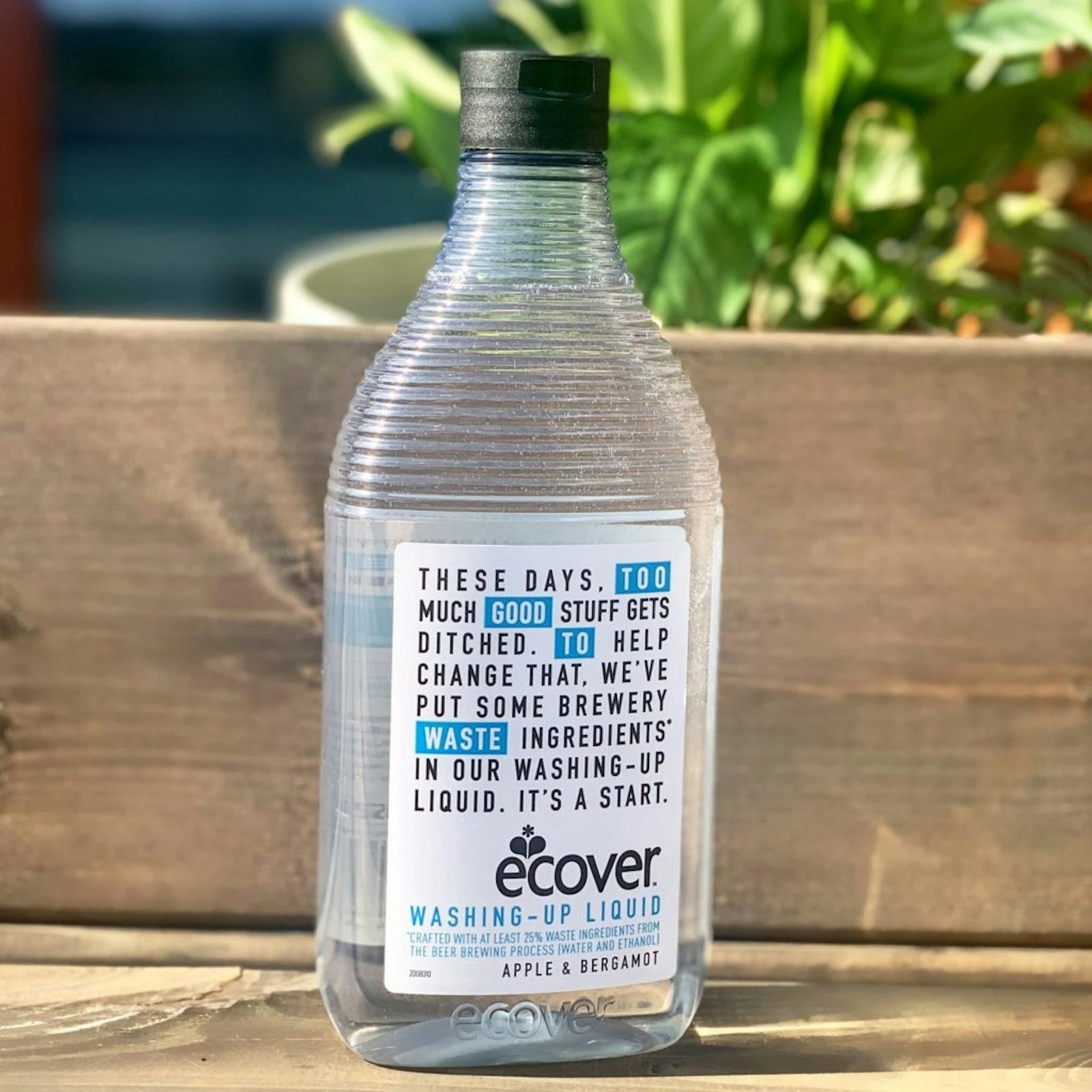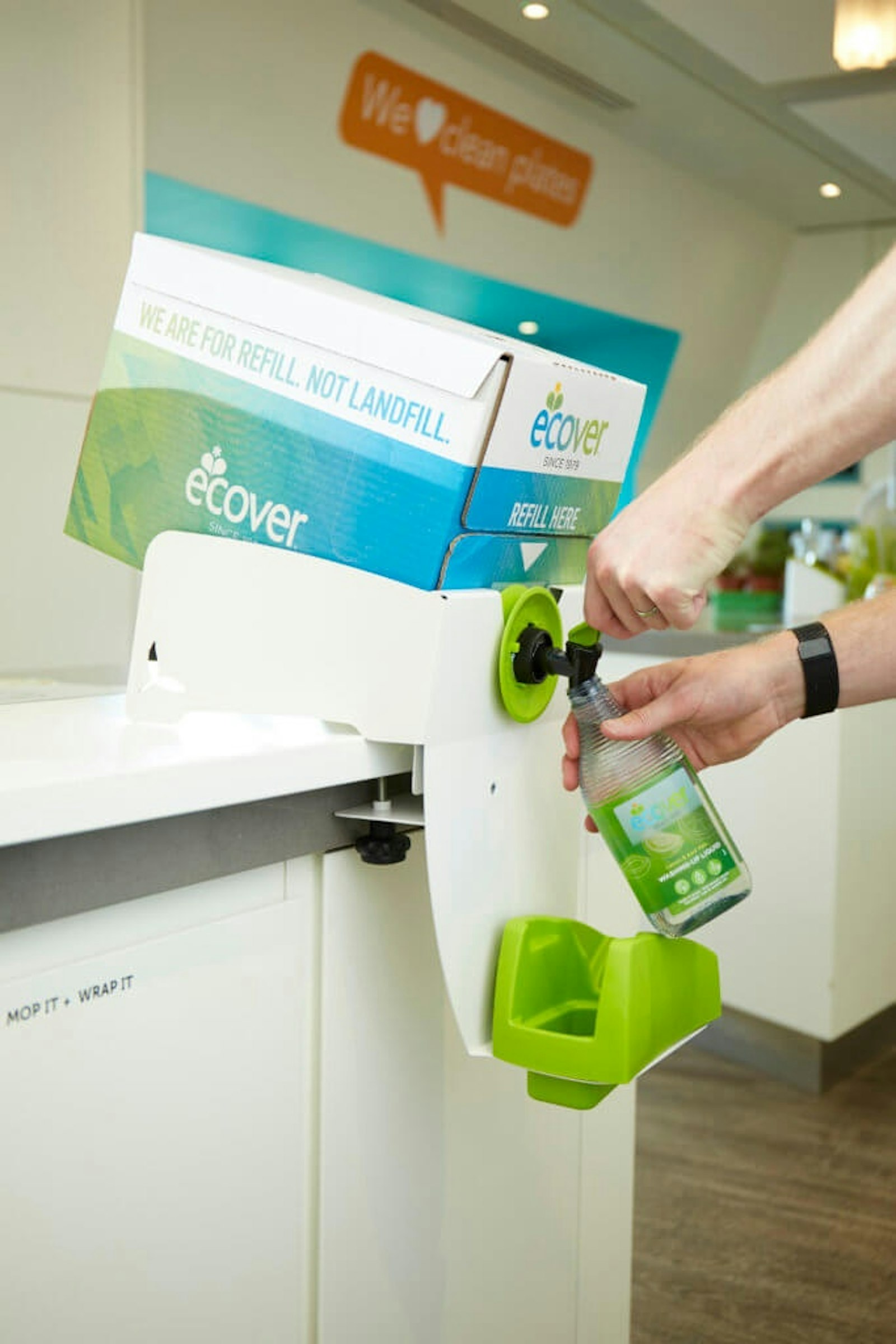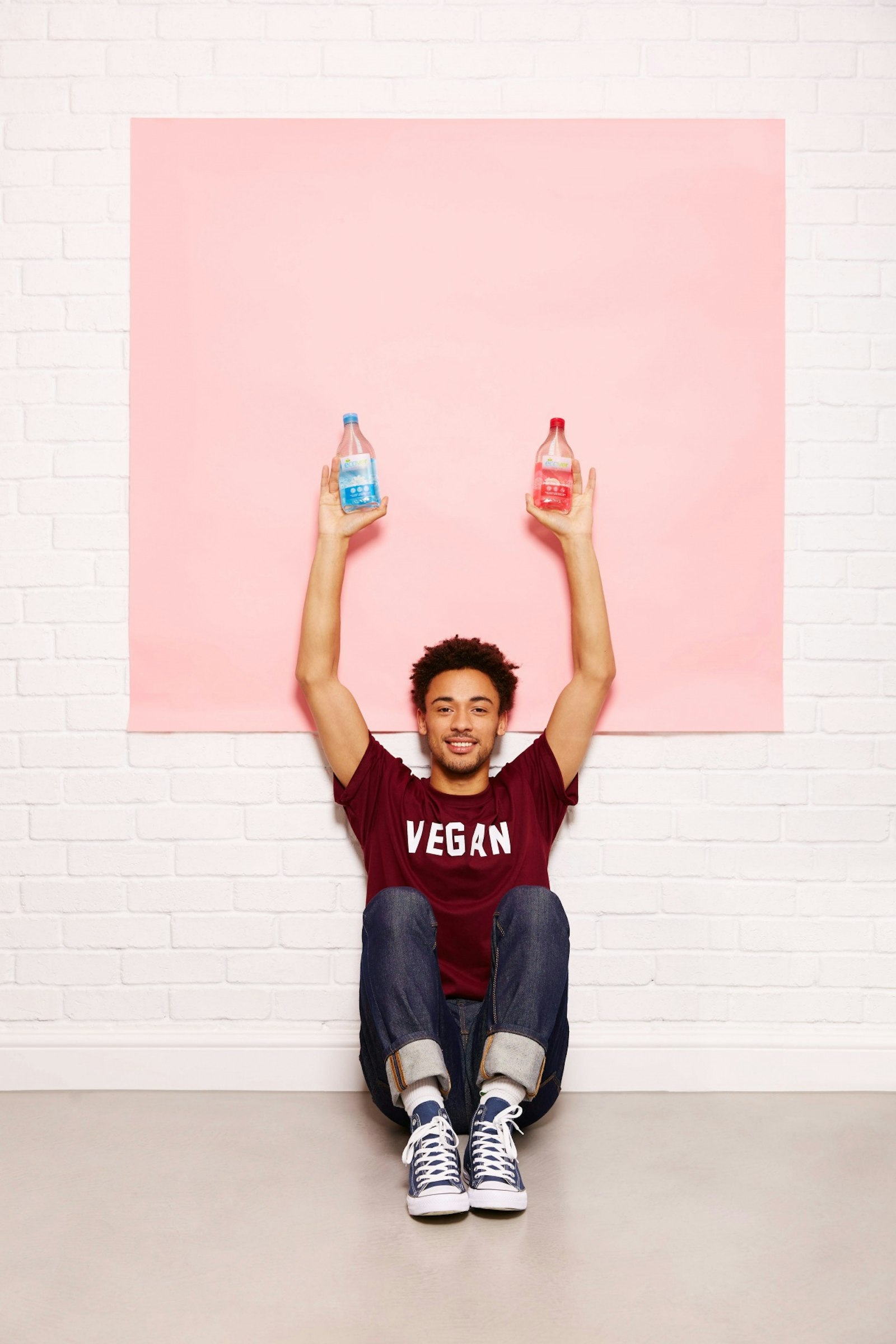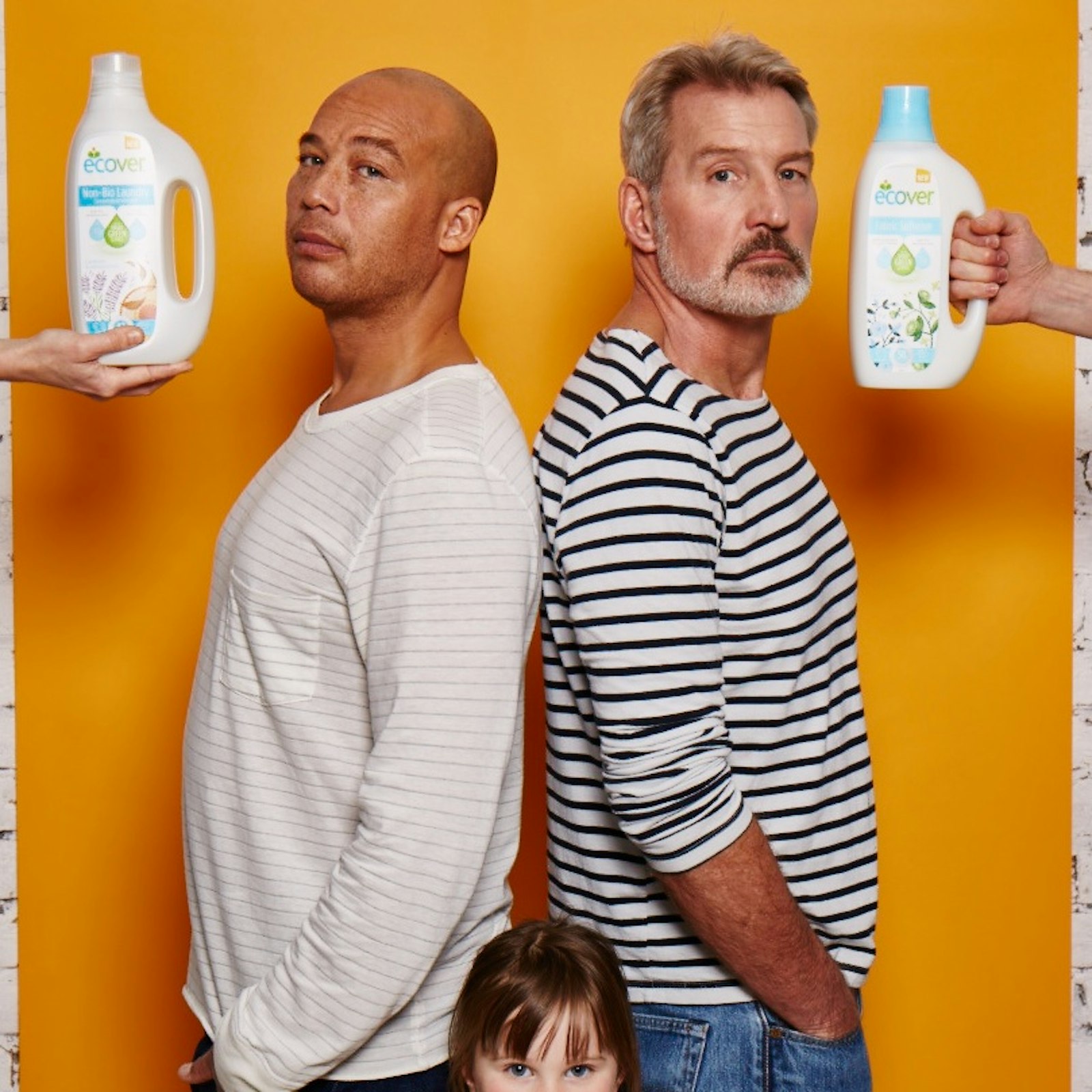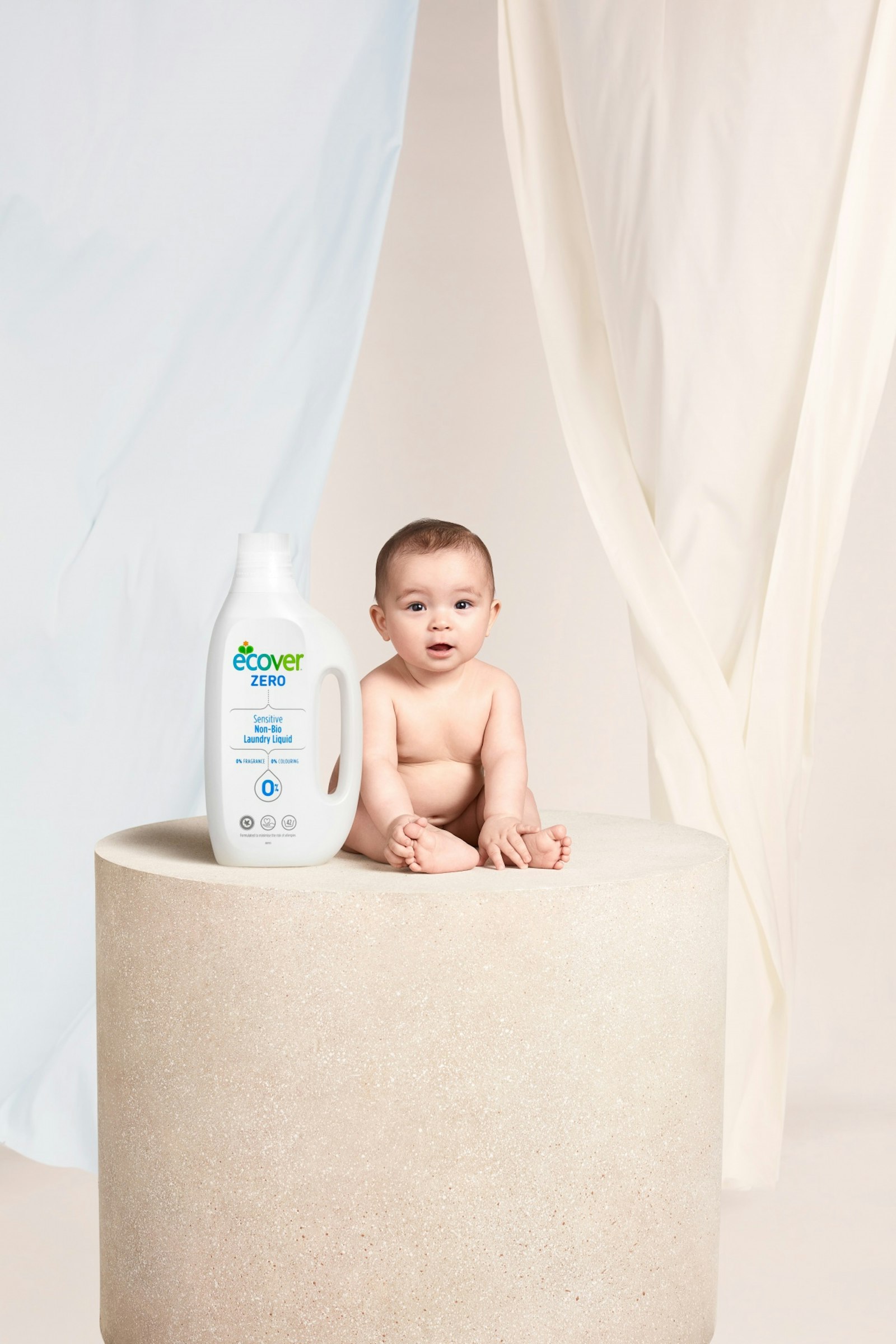de Velde
Ecover
Ecover has been a pioneer and innovator in the cleaning products market since 1979.
From the outset, the brand has consistently opted for an environmentally friendly approach, both in terms of products and at company level. Tom Domen, educated as a product developer and currently Global Head of Long Term Innovation at Ecover, has just returned from a few days of strategic team meetings in a UK nature reserve. He is meeting with us to discuss the innovative aspects of Ecover. Together with a team of six, he works as an in-house incubator in business and consumer innovation, such as the refill system and deriving ingredients from waste. The company’s European headquarters are located in London, in addition to which Ecover also has branches in Germany and - after Ecover took over its American counterpart Method - in the USA. The European factory and the Benelux headquarters are located in Malle. Tom Domen says: “The company currently employs a workforce of about four hundred. When I started here fourteen years ago, there were only forty of us. The company was just starting to gain momentum.”
The founding of Ecover in 1979 was triggered in full by concerns about environmental issues. At that time, all cleaning products contained phosphates, which ended up in the water. An excess of phosphates in nature leads to oxygen-depleted water, and that has consequences for the environment. The company wanted to put renewable, biodegradable and non-toxic products on the market. “In the beginning, this literally meant that the phosphates were removed from the products, resulting in products that were not as efficient as those of our competitors. After all, it takes years of research and development to produce phosphate-free products. We did have a lot of loyal customers purchasing our products from health food stores who were willing to compromise, but our products weren’t catching on in the supermarkets.” The company went in search of new ingredients, such as the ecosurfactant from European rapeseed. “It was pioneering work. The company has always seen itself as an innovator, a pioneer, an activist. We wanted to set things in motion, to be a catalyst.” And it worked. By developing products without phosphates, the company showed the industry that it was possible. Today, all laundry and cleaning products are phosphate-free.
Beer
Ecover recently launched a new range of dishwashing products that are made from the waste products that are released when brewing alcohol-free beer, a venture for which Ecover partners with Inbev. To produce non-alcoholic beer, the alcohol must be taken out of the beer. This is incorporated into Ecover’s new range. The next step is to make use of other waste flows. The incubator team is the body that brings together the right partners and scientists. “It is from projects like these that you learn exactly how difficult it is to process waste. To give you an example: this reuse of alcoholic beer waste suddenly brought us into contact with other systems that place a burden on the environment. We are also faced with quality challenges, because this waste flow is less homogeneous. ”Ecover has another project in the pipeline in the field of laundry detergents. “We’re working on a laundry detergent that has a restorative effect on clothing. We also want to use the launch of this product to raise awareness among customers that we sometimes wash our clothes too frequently. ‘Wash less, wear longer’ is the message. Much is in the hands of the consumers themselves.”
Refillable
Most of Ecover’s products are now sold in 100% recycled PET bottles and containers, which are mainly made from collected beverage bottles. “We never make coloured bottles because they’re harder to recycle.” Ecover also sold its products in bottles made from ocean plastic for a while, but companies like Procter & Gamble for example have started doing likewise. “For us it was meant as more of a statement. In fact, we would like people to opt for refilling bottles as much as possible. Recycling is not a long-term solution for us because too much goes wrong with the collection and processing of plastic. Unfortunately, the consumer still has a long way to go when it comes to refilling. We’ve been making refills mainstream for twenty years now. In the past, this was only possible in health food stores, but now we’ve gained great momentum. In the UK, we are presently conducting a pilot project at Waitrose and we are also in consultation with five European retailers about setting this up. There is also a test in progress at Carrefour Belgium, but we must remain realistic: there is still a lot of work to do in convincing people that single-use plastic is something that needs to be relegated to the past. We are also currently working on a project with reusable glass bottles. Because we make cleaning products, consumers can simply refill their bottles by themselves.” This was launched at the end of 2019.
Activist
Ecover has been operating since 1979 as a company that focuses on innovation rather than growth. But, how do you do that? “It’s a mind shift that everyone here makes. Growth should never be a company’s foremost priority. You have to be confident that focusing on innovation will result in the necessary growth and resources in the long term. Ecover almost went bankrupt in the past. And it’s certainly not true that we don’t keep an eye on our figures. However, it is thanks to our focus on innovation and sustainability that we are indeed now experiencing healthy growth. What few people realise is that the cleaning industry is a fairly innovative business, which means that big names are also open to innovative ideas. So we have certainly acquired our place in the landscape as a catalyst for that innovation.”
Factory
True to its mission, in 1992 in Malle, Ecover built one of the first sustainable factory buildings, made from renewable materials such as wood, and with plenty of natural light and a green roof. “Our offices are zero waste. If any waste is produced at all, it must be recyclable. At team meetings we order zero waste catering. Employees receive a high bicycle allowance and our company cars are hybrid. ”What does an ordinary working day look like at a sustainable company? An environmentally friendly mind-set is one of the focus points. It goes without saying that a great deal of attention is paid to this. “We make sure that there is ample opportunity for self-reflection because we know that things go wrong if you want to go too fast. That’s why we meet every day to question things. We also have a philosophy in which ‘reconnecting with nature’ is very important. When you bring people back into contact with nature, they automatically develop an affinity with it. That’s why we also do off-sites, brainstorming in natural surroundings.” Nature is a fundamental source of inspiration that always works locally and on a small scale. Everything available locally is used. Of course, nature does not operate from a desire for efficiency. “That is why we are also looking at the long-term potential of small-scale, local production. Anyone who is too obsessed by growth and efficiency is going to fail. This awareness is crucial at this point in history. Eleven more years and the consequences of global warming will be irreversible. A dynamic will come into force, the consequences of which nobody can foresee. More than ever, we need to conduct business in a completely different and more responsible way.”

